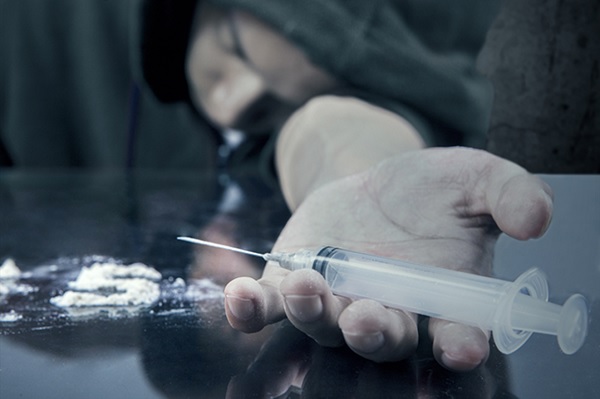Community
As Massachusetts overdose deaths numbers released, report calls for overdose prevention centers

BOSTON (December 13, 2023) – Opioid-related overdose deaths in Massachusetts decreased slightly in the 12-month period ending September 30, 2023, compared to the same period last year, according to preliminary data released today by the Massachusetts Department of Public Health (DPH). Between October 1, 2022, and September 30, 2023, there were 2,323 confirmed and estimated opioid-related overdose deaths, eight fewer than the same time last year. Massachusetts had a record 2,359 opioid-related overdose deaths in all of 2022.
The preliminary data show that fentanyl was detected in 93 percent of all opioid-related overdose deaths in the first three months of this year. The increasingly toxic drug supply in the United States and ongoing opioid epidemic have claimed the lives of more than 25,000 people in Massachusetts since 2000.
The reports are being released today alongside a feasibility report recognizing that the establishment of overdose prevention centers in Massachusetts would be an effective intervention to combat preventable overdoses and decrease fatal overdose rates in the state.
“The overdose crisis continues to devastate our communities and families throughout Massachusetts. When I read these numbers, I’m heartbroken to think about the lives connected to each one and their loved ones who are enduring this tragic loss,” said Governor Maura Healey. “Our administration is combating this crisis by continuing to invest in community supports aimed at destigmatizing substance use disorder and reducing the negative effects of substance use. Together, we can advance harm reduction and prevention efforts through evidence-based strategies, including low-threshold access to services and long-term solutions for treatment and recovery.”
“Every year, sadly, we lose thousands of Massachusetts residents to drug overdose, underscoring the tragic impact of the opioid crisis on communities across Massachusetts,” said Lieutenant Governor Kim Driscoll. “By collaborating with municipalities across the state and investing in innovative efforts like peer-recovery support centers, we are helping municipalities and community organizations offer crucial and responsive care to residents struggling with addiction.”
The Overdose Prevention Center Feasibility Report, compiled as part of the administration’s Opioid Epidemic Strategy, recognizes the establishment of OPCs in Massachusetts as an evidence-based, life-saving tool that aligns with DPH’s approach to reduce the harms of substance use. OPCs are facilities where people who use drugs can consume pre-obtained substances under the supervision of trained staff who can administer overdose reversal medication when necessary. Other services at OPCs commonly include access to sterile supplies, first aid administration, drug-testing services, infectious disease testing, and referrals to health and social services including substance use disorder treatment.
The findings of the OPC feasibility report support those made in 2019 by the Massachusetts Harm Reduction Commission that called for the state to expand harm reduction resources, including by pursuing the establishment of one or more overdose prevention centers. After a review of available data, DPH has concluded that the establishment of OPCs in supportive communities is an evidence-based, valuable harm reduction service that could be feasible in Massachusetts pending legislative action to extend state-level legal protections.
No overdose death has ever been reported at a sanctioned OPC, as highlighted in the report. OPCs have operated for more than 30 years in Canada, Australia, and much of Europe, and are in place or being explored in New York City, Rhode Island, Minnesota, and Philadelphia.
“We are determined to reduce and eliminate fatal overdoses in our state, and yet, the numbers keep climbing,” said Secretary of Health and Human Services Kate Walsh. “Each number represents a person who was beloved and whose death was preventable, and we will make use of every tool at our disposal to fight this opioid epidemic that has claimed too many lives in Massachusetts. We will continue to support bold, innovative solutions to help us turn the tide of this crisis and prevent any additional fatal overdose deaths.”
“Far too many Massachusetts families have been shattered by the trauma, grief, and heartbreak of losing a loved one to overdose,” said Department of Public Health Commissioner Robert Goldstein, MD, PhD. “Overdose deaths are preventable and that is why we should – and we must – continue to forge a culture of harm reduction by initiating and expanding services and programs that have been shown to work. We know most overdose deaths occur in private and go unwitnessed. Overdose prevention centers, therefore, can be lifelines, serving not only as places of intervention, but as places of empathy, understanding, and healing.”
DPH continues to support a wide range of harm reduction strategies. DPH is working with syringe service providers (SSPs) to explore opportunities to provide services through harm reduction vending machines as an additional component of harm reduction programming. DPH will continue to identify communities with high overdose incidence and with limited naloxone distribution to support further access to these types of harm reduction services.
For the first time, DPH also released data today detailing non-fatal opioid-related overdose rates in Massachusetts. From 2013 through 2021, a total of 133,295 NFOs involving 72,018 Massachusetts residents were reported. Public health surveillance of NFOs is limited to events during which a patient receives medical services (such as ambulance trips, emergency department visits, or hospitalization), so the true number of NFOs in Massachusetts may be greater. People who survive one opioid overdose are more at risk for another opioid overdose. The data released today show that one of every 11 people who had one NFO from 2013 through 2021 (6,404 out of 72,018) later experienced a fatal opioid overdose.
The Healey-Driscoll administration continues to address the state overdose crisis by investing in evidence-based prevention, intervention, treatment, and recovery support services for individuals with substance use disorder, including an expanded 24/7 overdose prevention helpline, increased access to low-threshold housing and services, and increased distribution of the overdose-reversal drug naloxone and fentanyl test strips. Working closely with the legislature, the Healey-Driscoll Administration’s Fiscal Year 2024 (FY24) budget invests more than $700 million in substance addiction prevention and treatment programs.
More information on the Healey-Driscoll Administration’s actions and initiatives to address the opioid crisis can be found here.
Key Findings from December 2023 Opioid-Related Overdose Deaths Report:
-There were 1,718 confirmed and estimated opioid-related overdose deaths in the first nine months of 2023, approximately 32 fewer deaths than in the first nine months of 2022.
-The rate of opioid-related overdose deaths in Massachusetts has increased at a rate of 3 percent per year on average from 2015 (25.6 per 100,000 people) to 2022 (33.6 per 100,000).
-Cocaine has increased at a rate of 6 percent per quarter on average since 2016 and was present in a record high 60 percent of opioid-related overdose deaths in the first three months of 2023 for which a toxicology report was available.
-Alcohol was present in 29 percent of toxicology reports in the first quarter of 2023, benzodiazepines in 24 percent, prescription opioids in 11 percent, amphetamines in 10 percent, xylazine in 7 percent, and heroin in 4 percent.
-Males comprised 72 percent of all opioid-related overdose deaths in the first nine months of 2023.
-47 percent of all opioid-related overdose deaths in the first nine months of 2023 were among people aged 25-44.
-Naloxone was administered in 97 percent of acute opioid overdoses treated by Emergency Medical Services during the first nine months of 2023.
Key Findings from Non-Fatal Opioid-Related Overdose Data Brief:
-The number of non-fatal opioid overdoses among Massachusetts residents increased by 130 percent from 2013 to 2017 and decreased 18 percent from 2017 to 2021.
-

 Community6 years ago
Community6 years agoNational Shrine of La Salette Festival of Lights 2017 set to begin
-

 Community6 years ago
Community6 years agoMassachusetts State Police looking for good home for retired dogs
-

 Crime6 years ago
Crime6 years agoFall River ranked most dangerous city in Massachusetts according to report
-

 latest6 years ago
latest6 years agoDurfee student allegedly overdoses on marijuana
-

 Community6 years ago
Community6 years agoVideo of Fall River Police goes viral
-

 Causes6 years ago
Causes6 years agoMissing Fall River woman found deceased
-

 Crime6 years ago
Crime6 years agoFall River Police add names to most wanted list
-

 Causes6 years ago
Causes6 years agoFall River teenager reported missing has been found





Fed Up
December 13, 2023 at 12:25 pm
The solution is NOT more overdose prevention centers. DO NOT look for the Government to solve any problem. They are the problem. Million walk right over the boarder unvetted including opioid and fentanyl traffickers. The same politicians and judges keep rereleasing known drug dealers back onto the streets with slaps on the wrist for dealing in death. Now these are the exact same people who are moving heaven and earth to screw over law abiding gun owners in the name of public safety by passing unconstitutional gun laws but continue to release known drug dealers back on the streets to reoffend. Think about this there were 101 gun related homicides in 2022 in Massachusetts compare that to 2359 overdose deaths! And yet the whole of Mass Pols are united in passing more gun laws and not ONE of them are calling for stiffer sentences for trafficking deathly drugs or enforcing the laws already on the books. Massachusetts politicians and judges are the problem.